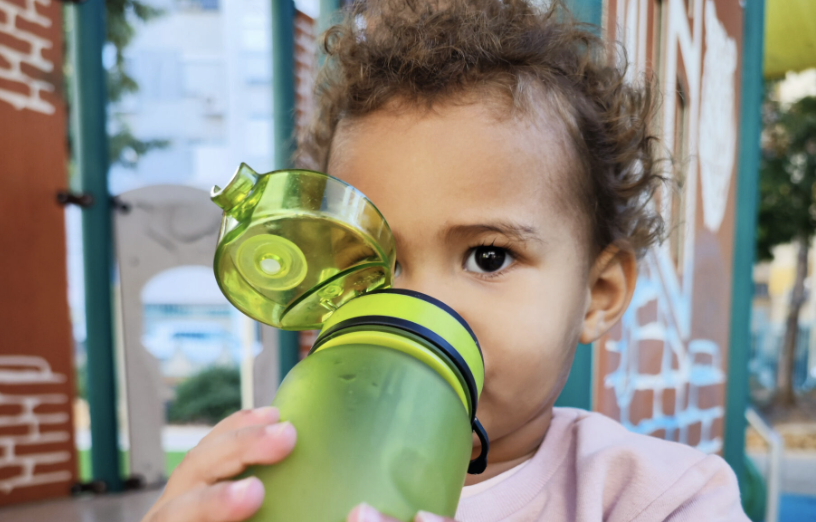FOR IMMEDIATE RELEASE
May 11, 2023
DISTRUST OF TAP WATER EXACERBATES INEQUITY IN KERN COUNTY
UCLA study highlights Latinos’ distrust of tap water and solutions that could improve uptake and use of the tap by residents.
A new exploratory study conducted by researchers at UCLA Latino Policy and Politics Institute and the UCLA Luskin Center for Innovation found that Kern County caregivers – especially Latinos – distrust their tap water. The team also found this leads to consuming water purchased from alternative sources or sugar-sweetened beverages, the latter of which has serious implications for community health. The small study conducted in collaboration with First 5 California begins to reveal key drivers of tap water distrust, such as poor residential plumbing, negative health experiences of friends and family with tap water and distrust of local water systems. The researchers also pointed to how distrust of tap water exacerbates inequity. They note that distrust leads to less water consumption and more consumption of sugar-sweetened beverages, which are associated with dental health risks, inadequate hydration, and obesity. Further, the team highlights the household affordability impacts on Latinos and other disadvantaged communities, given how expensive alternatives, including other water sources, are compared to tap water.
“California enshrined the right to clean water in its legal code over a decade ago, yet nearly one million residents don’t have access to water that meets quality standards,” said Silvia Gonzalez, lead author of the study and co-director of research at UCLA Latino Policy and Politics Institute. “This study provides preliminary data that suggests even if we completely address access issues to safe water, we still have a long way to go to convince communities to drink from the tap, a low-cost option that can impact health, household finances and the environment.”
The study surveyed a small sample of parents and caregivers in Kern County, California to determine if and why they distrust tap water. The study also examined potential policies that might promote increased trust and use of public water systems. Key findings include:
- About 60% of all survey respondents reported some bad experience with tap water in or outside their homes. For Latinos, this number was even higher at 68%.
- Latino caregivers reported not drinking tap water at higher rates than others. While 10% of all respondents reported using tap water, 0% of Latino respondents reported doing so.
- At-home tap testing was cited by 48% of all survey respondents as a way to increase tap water consumption. Latino respondents were one and a half times more likely to cite at-home testing as a solution.
- Policies such as taxing sugary beverages would result in some decrease in the consumption of sugar-sweetened drinks but were seen as unfair by many, especially Latinos, 39% of whom see a tax as unfair compared to 21% of all respondents. However, support for such a measure increased with the ability to have input into how the tax revenues are spent.
To address these findings and achieve safe, affordable, and accessible water for all Californians, the research team recommends:
- Creating grant and loan programs to improve residential premise plumbing to address resident concerns about the quality and safety of their household plumbing.
- Funding community-based research, specifically in Latino communities where increased distrust is seen, to better understand the drivers of distrust and lack of use.
- Funding trusted community-based organizations to design and implement evidence-based public education campaigns to address the unique drivers of distrust in their local communities elucidated through targeted research.
“People simply don’t trust that their water is safe to drink, and it’s going to take more than their water company saying it is for people to have confidence their local water is healthy,” said Ariana Hernandez, co-author of the report. “It is critical that our governments not only invest in making our water infrastructure safe but in community-based messengers who can disseminate information, dispel myths, answer residents’ questions and promote trust in local water systems.”
Distrust of tap water is a significant issue in Kern County because young children face broad health disparities. A disproportionate percentage of Latino households with children document dental and obesity concerns connected to diet and consumption of sweet substances. As these concerns and rates of consumption of sugar-sweetened beverages increase among youth in the Central Valley, it is imperative to develop solutions that not only ensure access to safe water but encourage actual consumption by residents.
This study was made possible through a seed grant from the UCLA Institute of American Cultures and UCLA Chicano Studies Research Center, as well as funding from the UCLA Luskin Center for Innovation and the UCLA Latino Policy & Politics Institute.
Download the full report here.
MEDIA CONTACT
Kacey Bonner
###
About UCLA Latino Policy and Politics Institute
The UCLA Latino Policy and Politics Institute addresses the most critical domestic policy challenges facing Latinos and other communities of color through research, advocacy, mobilization, and leadership development to expand genuine opportunity for all Americans.











